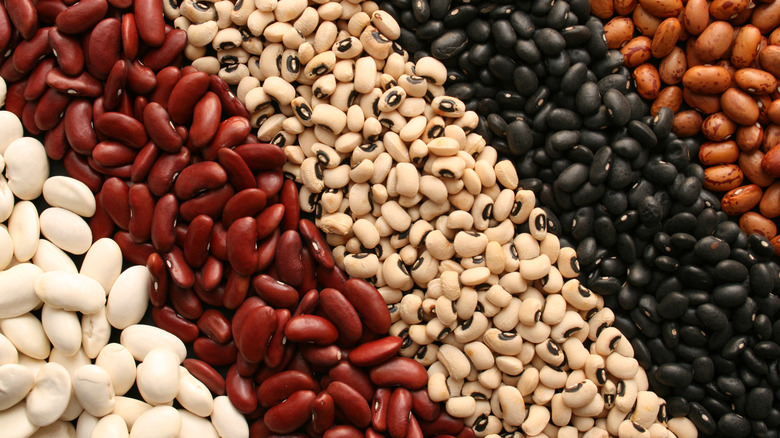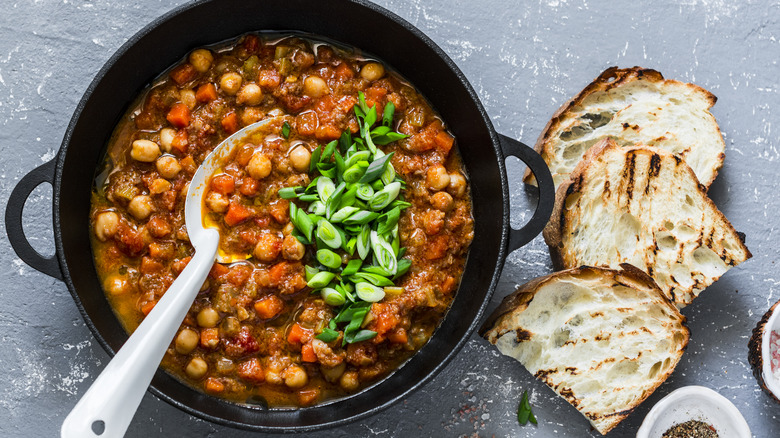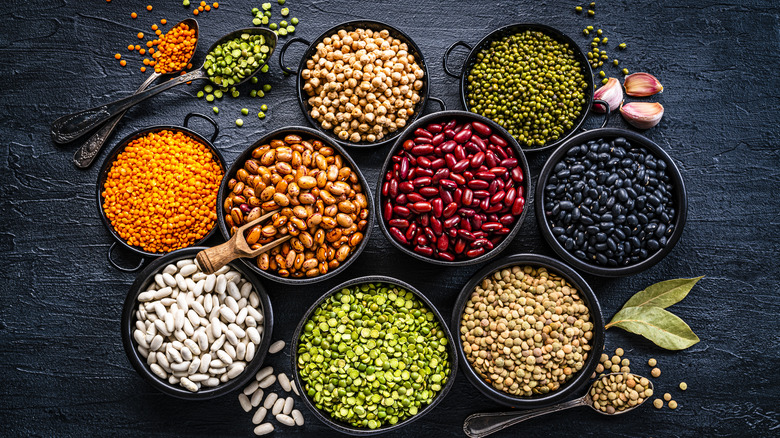No, You Technically Don't Need To Soak Dried Beans
It's a wonder how anyone ever ate their legumes before canned beans came into the picture. You'd have to plan the next day's menu at least a night in advance only so that the little legumes got enough time to soak in water overnight and let's be honest, who has the time for that? Canned beans became a game changer; it's as easy as propping the lid open and eating the beans straight out of the can.
Contrary to popular misconception, however, dried beans do not need to be soaked. That's right, you don't have to be organized with meal prep or have the memory or commitment that it takes to remember to soak dried beans. Dried beans are essentially soaked in water to reduce the time that it takes to cook them. As long as you're prepared to cook the dried beans for longer, you don't necessarily have to go through the trouble of soaking them first. So, if the only thing stopping you from working with dried beans rather than canned ones — which are often less nutritious and subpar in both flavor and texture — is the long soak time they need, you can easily skip past the step.
Why dried beans don't need to be soaked in water
Dried beans take a notoriously long time to cook but soaking them in water helps to soften them up which subsequently reduces the amount of time that it takes to cook them. It's also believed that soaking prevents beans from splitting or bursting open which helps retain the bean's texture. But the question is, are these perks worth the trouble of soaking beans overnight? Perhaps not. According to long-time Los Angeles Times food writer, columnist, and author, Russ Parsons, the time you save by soaking beans is "marginal and there are no other labor-saving benefits."
Another reason why beans are soaked overnight is that it's long been thought that the long water bath helps rid the legumes of its oligosaccharides fibers that are hard to digest and which can make you feel gassy. The water that the beans are soaked in is then discarded and with it, the ingestible fibers. Parsons says that's actually not factual, though. What's more, and unbeknownst to many, however, you're also discarding much of the bean's natural flavor when you soak them in water and then throw away the liquid.
How to cook dried beans without soaking them
Dried beans can be cooked in pretty much the same way as beans that have been soaked except, you'll need to factor in the extra time that they may take to cook through. If you'd like to make the most of your beans though, cooking dried beans from scratch can actually be to your advantage, including the extra cook time.
Rather than cooking soaked beans in a jiffy, dried beans can be slowly simmered in a pot of water with herbs, spices, and aromatics like bay leaves, garlic, onions, chili powder, or cumin. The longer cook time will give the dried beans more time with these ingredients, helping them soak in their flavors much better.
Additionally, dried beans that haven't previously been soaked in water can be full of tastiness. As you cook them in water, the liquid will turn into a starchy broth which can be a goldmine of flavor. You can even elevate this method by roasting aromatics, herbs, spices, and vegetables in the pot first before you add the water and dried beans to it. This will help you build a flavorful one-pot bean dish from scratch which may take a tad longer to cook but will be packed with flavors you didn't know you were missing when cooking with soaked beans.



